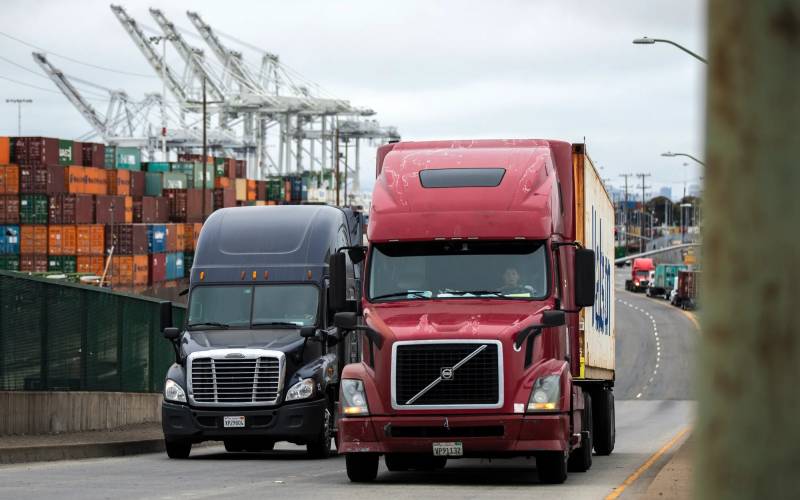About 17 states, including California, require certain large polluters to disclose how much they directly emit, according to the National Conference of State Legislatures. But California’s new climate disclosure bill stands out as the first that would mandate companies, both public and private, to also report their indirect emissions, including those released by transporting products and disposing waste. For example, a major retailer would have to report emissions from powering its own buildings, as well as those that come from delivering products from warehouses to stores.
Opponents of the bill say it is not feasible to accurately account for all of the mandated emissions from sources beyond what companies are directly responsible for.
“We’re dealing with information that’s either unreliable or unattainable,” said Brady Van Engelen, a policy advocate at the California Chamber of Commerce.
The chamber, which advocates for businesses across the state, is leading a coalition of influential groups, including the Western States Petroleum Association, the California Hospital Association and agricultural organizations, in opposing the bill. They argue many companies don’t have enough resources or expertise to accurately report emissions and say the legislation could lead to higher prices for people buying their products.
Hundreds of companies in California already have to disclose their direct emissions through the state’s cap and trade program, said Danny Cullenward, a climate economist and fellow at the University of Pennsylvania’s Kleinman Center for Energy Policy. The decade-old program, which allows large emitters to buy allowances from the state to pollute, and to trade them with other companies, is one of the largest in the world.
Cullenward said the disclosure bill could lead to similar proposals in other states.
Supporters of the disclosure bill acknowledge it’s not a “perfect” solution that would guarantee flawless emissions reports. But they say it’s a starting point.
California Environmental Voters, which supports the bill, says the legislation would put pressure on companies to move faster in lowering their emissions.
“Our state can’t just take 2023 off in terms of climate action,” said Mary Creasman, the group’s CEO.
If the bill becomes law, the California Air Resources Board would have to approve regulations by 2025 to implement the requirements. Companies would then have to begin publicly disclosing their direct emissions in 2026 and start annually reporting their direct and indirect emissions in 2027. They would also have to hire independent auditors to verify their reported emissions releases, although the state would not penalize them for unintentional mistakes in some indirect emissions’ reporting.
A similar proposal introduced last year passed the state Senate but failed in the Assembly. State Sen. Wiener, who introduced the legislation both years, has said proponents of the bill built a stronger coalition this year to ensure a better outcome.
Lawmakers are also weighing a bill that would require companies making more than $500 million annually to disclose how climate change could hurt them financially.
